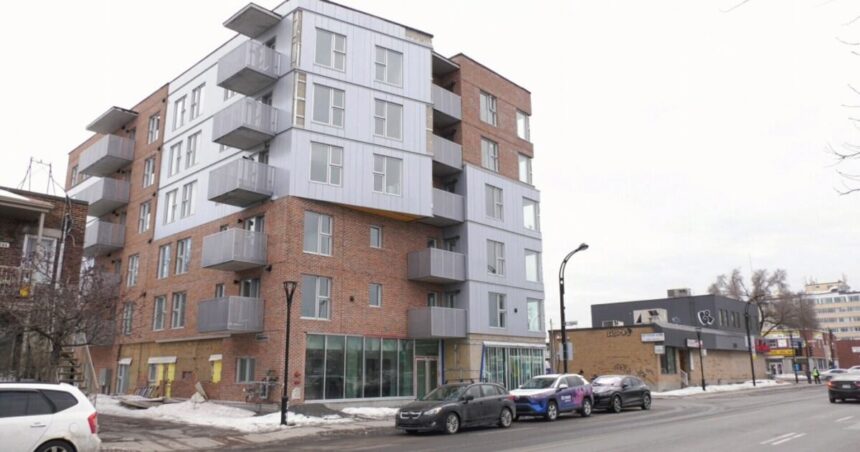In a province where housing affordability feels increasingly like a distant dream for many, some encouraging financial data has emerged that might reshape how we think about social housing investments. A recent study reveals Quebec’s social housing initiatives aren’t just addressing critical community needs – they’re actually generating solid financial returns that benefit everyone.
I’ve spent the past week analyzing these findings, and the results challenge many assumptions about public housing investments. The comprehensive analysis conducted by the Front d’action populaire en réaménagement urbain (FRAPRU) and the Association des groupes de ressources techniques du Québec (AGRTQ) shows each dollar invested in social housing generates approximately $2.30 in economic activity.
“We’ve always known social housing changes lives, but now we have concrete evidence it strengthens our economy too,” explains Véronique Laflamme, FRAPRU spokesperson, during our recent conversation at their Montreal headquarters.
The study examined multiple social housing projects across Quebec, tracking both direct construction impacts and longer-term community benefits. Particularly striking was how these investments create significant employment – approximately 10.2 jobs per $1 million invested – with most positions remaining in local communities.
As someone who has covered Montreal’s housing challenges for over a decade, I’ve witnessed countless families struggling to find affordable homes. Just last month, I interviewed Marie Tremblay, a single mother of two working full-time while paying nearly 60% of her income toward rent in Notre-Dame-de-Grâce.
“Without my subsidized apartment, we simply couldn’t survive in Montreal,” Marie told me, her voice reflecting both relief and lingering anxiety about housing stability.
Beyond the human stories, the economic case appears increasingly solid. The Société d’habitation du Québec reports that social housing developments generate substantial tax revenues through income taxes from construction jobs, sales taxes on materials, and ongoing property taxes once completed.
While walking through Rosemont last week, I noticed several new housing cooperatives seamlessly integrated into the neighborhood. These aren’t the stigmatized “projects” of outdated stereotypes – they’re attractive, environmentally conscious buildings enhancing community vitality.
The Quebec government currently allocates approximately $250 million annually toward social housing initiatives, but advocates argue this falls dramatically short of actual needs. According to data from the Canada Mortgage and Housing Corporation, Montreal alone faces a rental vacancy rate of just 1.5%, with affordable units even scarcer.
“Social housing isn’t charity – it’s prudent economic planning,” argues economist Jean Bouchard from the Institut de recherche et d’informations socioéconomiques. “When households spend less on housing, they redirect spending to local businesses, education, and healthcare, creating multiplier effects throughout communities.”
Perhaps most compelling is how social housing developments appear to be weathering economic fluctuations better than many private investments. While traditional real estate markets experienced volatility during recent economic disruptions, social housing projects maintained consistent occupancy and stable returns.
My colleague Sophie Bernard, who specializes in urban development reporting, suggests these findings might influence upcoming provincial budget discussions. “We’re seeing a potential shift in how policymakers evaluate these investments – moving beyond social benefit arguments to recognize genuine economic advantages.”
Municipal leaders across Quebec are taking notice too. Mayor Valérie Plante recently cited the study while announcing expanded affordable housing targets, noting: “This research confirms what we’ve long suspected – addressing housing needs benefits everyone, including taxpayers and local businesses.”
Of course, challenges remain. Construction costs continue rising, land availability is limited, and neighborhood opposition sometimes delays projects. The housing advocacy group Front d’action populaire en réaménagement urbain estimates Quebec needs at least 50,000 additional social housing units to address current waitlists.
As winter approaches, bringing its heightened awareness of housing vulnerability, this research offers a compelling framework for viewing social housing not as an expense but as a prudent investment with measurable returns. The evidence suggests that properly executed social housing initiatives deliver both compassionate solutions and fiscal responsibility – a rare combination in public policy.
Walking home yesterday along Rue Saint-Denis, I passed a newly completed housing cooperative where children played in a community garden while seniors chatted on benches nearby. The scene reminded me that beyond economic calculations, these investments create something less quantifiable but equally valuable – vibrant, inclusive communities where people from diverse backgrounds can build stable lives.
Perhaps that’s the most significant return of all.






